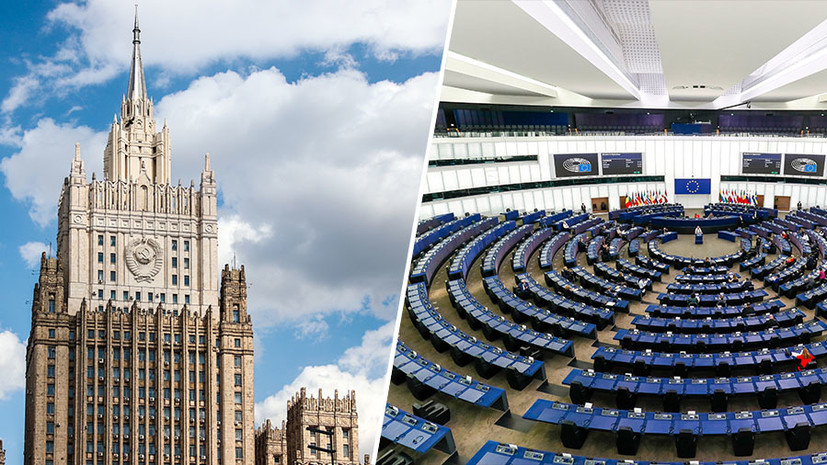Russian Foreign Ministry spokeswoman Maria Zakharova said that Moscow condemns attempts by EP members to manipulate public opinion in the context of the Russian elections to the State Duma.
“We strongly condemn the systematic attempts of the MEPs to manipulate European public opinion and understand that these attempts lead to the final discrediting of the European Parliament as the representative body of the European Union,” she said during a briefing on foreign policy issues.
According to Zakharova, “it is obvious that the European Parliament intends to draw some conclusions on this score on the basis of the conclusions of those organizations that have simply withdrawn themselves under a far-fetched pretext from participating in the monitoring of elections to the State Duma, or have nothing to do with this process. ".
“As before, we will give a firm rebuff to unacceptable interference in the national democratic processes of the Russian Federation,” Zakharova added.
Earlier, the European Parliament approved the report of the Lithuanian MP Andrius Kubilius with an appeal to the EU authorities to reconsider relations with Russia.
The EP's website reports that 494 parliamentarians supported the document, 103 opposed it, and another 72 abstained.
The report deals with the recommendation to revise the EU policy towards Russia and develop a strategy towards Moscow.
In particular, the author of the initiative believes that Brussels should “counteract the threat to security”, “fight against Russian interference in the affairs of the EU and the countries of the Eastern Partnership, of which, in particular, Ukraine and Georgia are members.
He also calls for a "selective dialogue" with the Kremlin and support for a "democratic society."
Among other things, the document says that the EU countries should be ready not to recognize the results of the upcoming elections to the State Duma if “violations of democratic principles and international law” are found.
The solutions listed in the document are advisory in nature.
Press Secretary of the Russian President Dmitry Peskov said that "the essence of this document can only be regrettable."
According to Peskov, "to our great regret, there is no talk about the need to establish a dialogue, about the need to resolve existing problems and disagreements through communication at various levels and through various channels."
The spokesman added that "the only discount that can be made is that the document is purely advisory in nature."
Member of the State Duma Committee on International Affairs Anton Morozov, in an interview with RT, called the EP's report unpromising from the point of view of the general policy of the European Union.
“Small states, including Lithuania, are trying to impose anti-Russian approaches to large states that harm the development of the European economy,” the deputy said.
According to him, now it is necessary to unite efforts to confront global challenges and ensure sustainable development in all regions of the world.
“For us, of course, it is Europe and our closest neighbors that are of the greatest importance,” Morozov said.
In his opinion, “Lithuania is just trying to trade in Russophobic sentiments” in order to get some kind of support from the European Union in exchange.
“That is, in fact, Lithuania is engaged in begging.
This, of course, has already become a habit with them, but it will not last long.
I am sure that there will be sane politicians and managers in Europe who understand that the development of mutually beneficial relations between Russia and the European Union is much more important than momentary political differences, ”added Morozov.
Senator Olga Kovitidi, in an interview with RT, noted that the EP's report is the next step in the systematic and systematic work of the West in confronting Russia.
“The EU should stop living by exploiting the topic based on confrontation and move on to mutually beneficial cooperation,” said Covitidi.
State Duma deputy Ruslan Balbek called the EP report "a set of slogans and slogans of an anti-Russian orientation."
"But for MEPs, many of whom got into parliament thanks to Russophobic hysteria in the West, this is another opportunity to show themselves - they say, they are faithful to their principles," Balbek said in an interview with RT.

